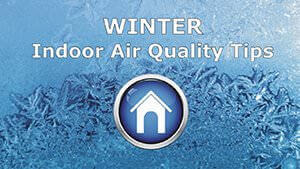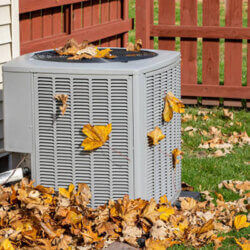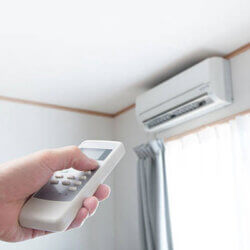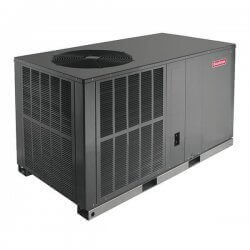
Winter indoor air quality differs from others seasons in some very important ways. As we spend much more time indoors during the cold winter months in St. Louis, many allergens come from internal sources including building materials, pets, cooking fumes, and dust. Additionally, low humidity levels can worsen the impact of allergens and promote the spread of disease, making winter indoor air quality even more of a concern.
If you find yourself suffering from seasonal allergies or symptoms of poor winter indoor air quality like respiratory issues such as asthma, then this article is for you. There are several steps you can take to ensure the winter indoor air quality for you and your family is safe and comfortable this season.
4 Winter Indoor Air Quality Tips

- Clean Your Air – Purchasing an air purifier can improve your winter indoor air quality drastically. Tiny dust particles and spores are present in our home throughout the year, but in the winter, we open our windows much less due to the cold. This lack of circulation creates stale, stagnant air and can trap these dangerous particles. An air purifier will capture and kill these pollutants.
- Consider Ventilation to Move Stagnant Air – While it is important to have a well-insulated home, this may have an adverse effect on your winter indoor air quality. Sealing your home from the elements will keep you warm, but it may also cause stagnant air as there is no circulation or fresh, clean air entering your home or office. An ERV or energy recovery ventilator will improve winter indoor air quality by pulling new air in from the outside and exhausting the old, stale air out.
- Humidify Your Home – With poor winter indoor air quality comes chapped lips and dry, cracked hands. Adding a humidifier to your arsenal will help to combat these troublesome symptoms. Humidifiers are especially important for nurseries and the elderly as well as proper humidity levels can prevent the spread of disease and respiratory issues. If you are more susceptible to illness, it is extremely important to keep your winter indoor air quality as pleasant as possible to prevent respiratory issues.
- Clean & Check Your Furnace – Because your gas furnace and HVAC system will be working hard to keep you warm this winter season, your winter indoor air quality will directly correlate with your HVAC system’s ability to function properly. Check your vents for any blockages and purchase new air filters. Clean air filters will trap dust and dirt, improving winter indoor air quality as well the efficiency of your furnace. A poorly maintained HVAC system can not only negatively affect your winter indoor air quality, but it may also be dangerous. Carbon monoxide leaks are potentially fatal and easily preventable. Along with scheduling an annual checkup of your current system, install a carbon monoxide detector if you have not already. This small extra cost is worth the peace of mind that your winter indoor air quality is safe for you and your family during these cold months.
Learn More About Winter Indoor Air Quality
Throughout every season, our dedicated team is here to answer your HVAC related questions. We have more than half a century’s experience meeting the heating and cooling needs of St. Louis home and business owners, and we encourage you to contact our heating & air conditioning experts today to schedule your furnace checkup. It is going to be a cold one out there this year, but with us on your side, there is no need to worry. Your comfort and safety are our top priorities.









